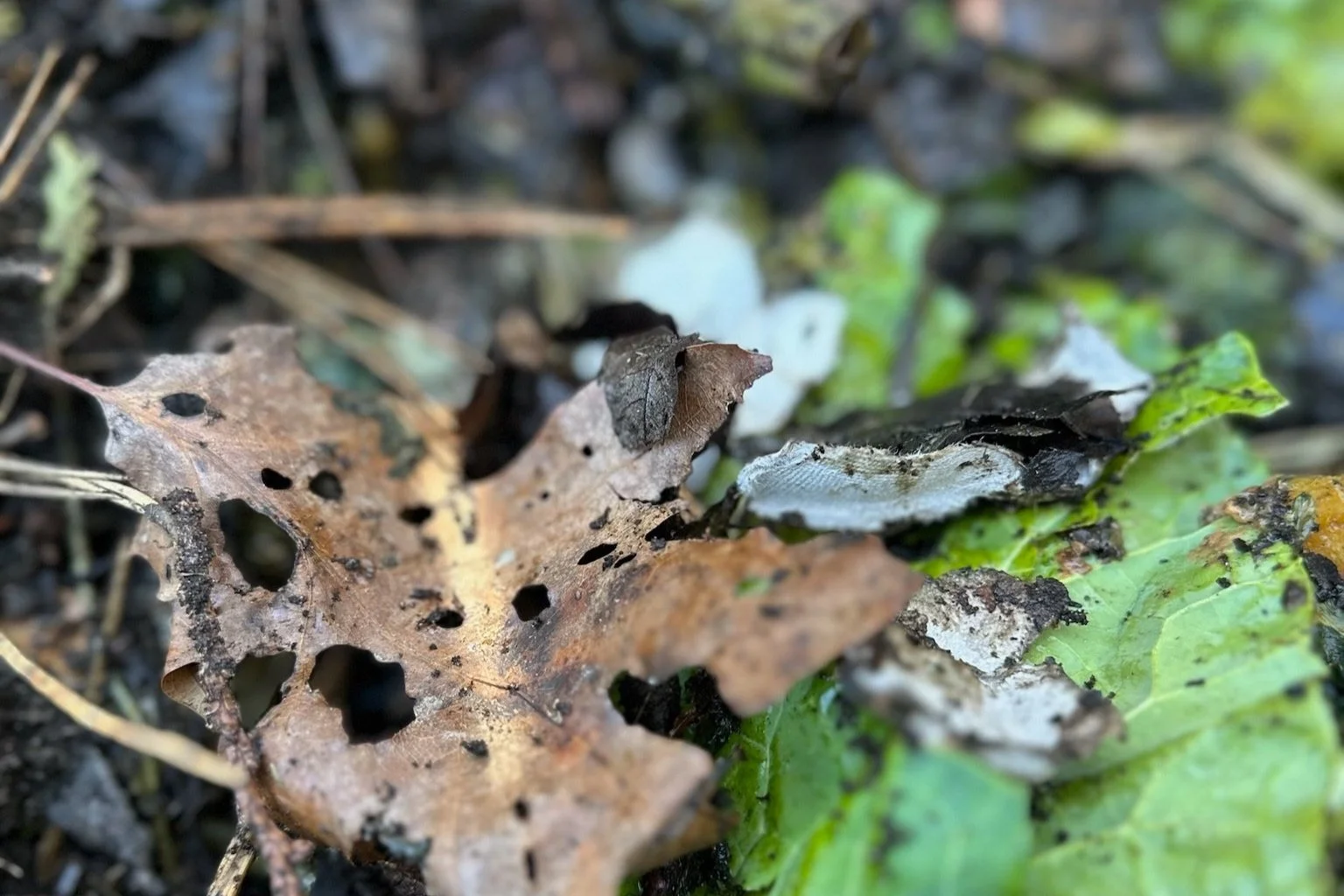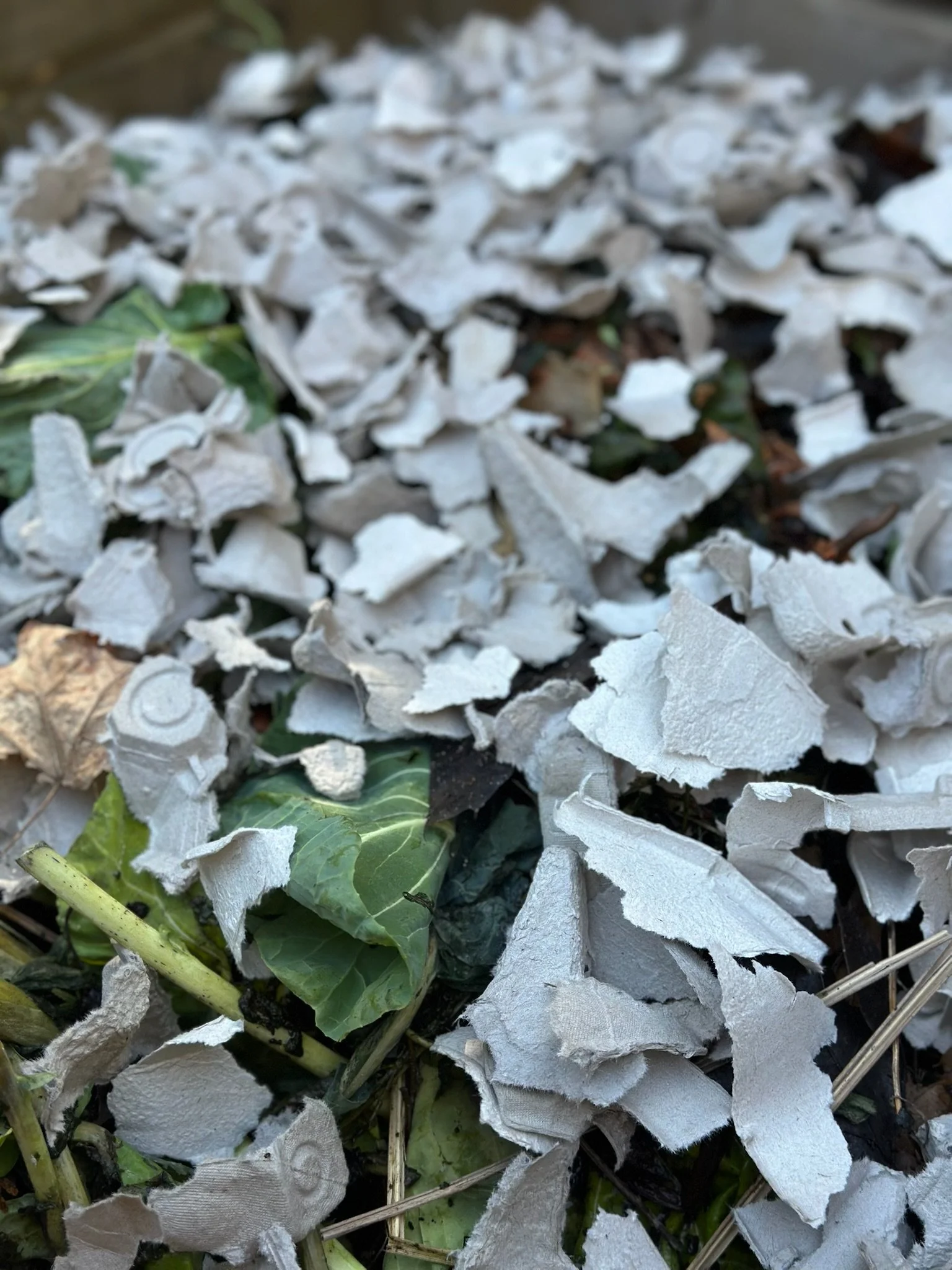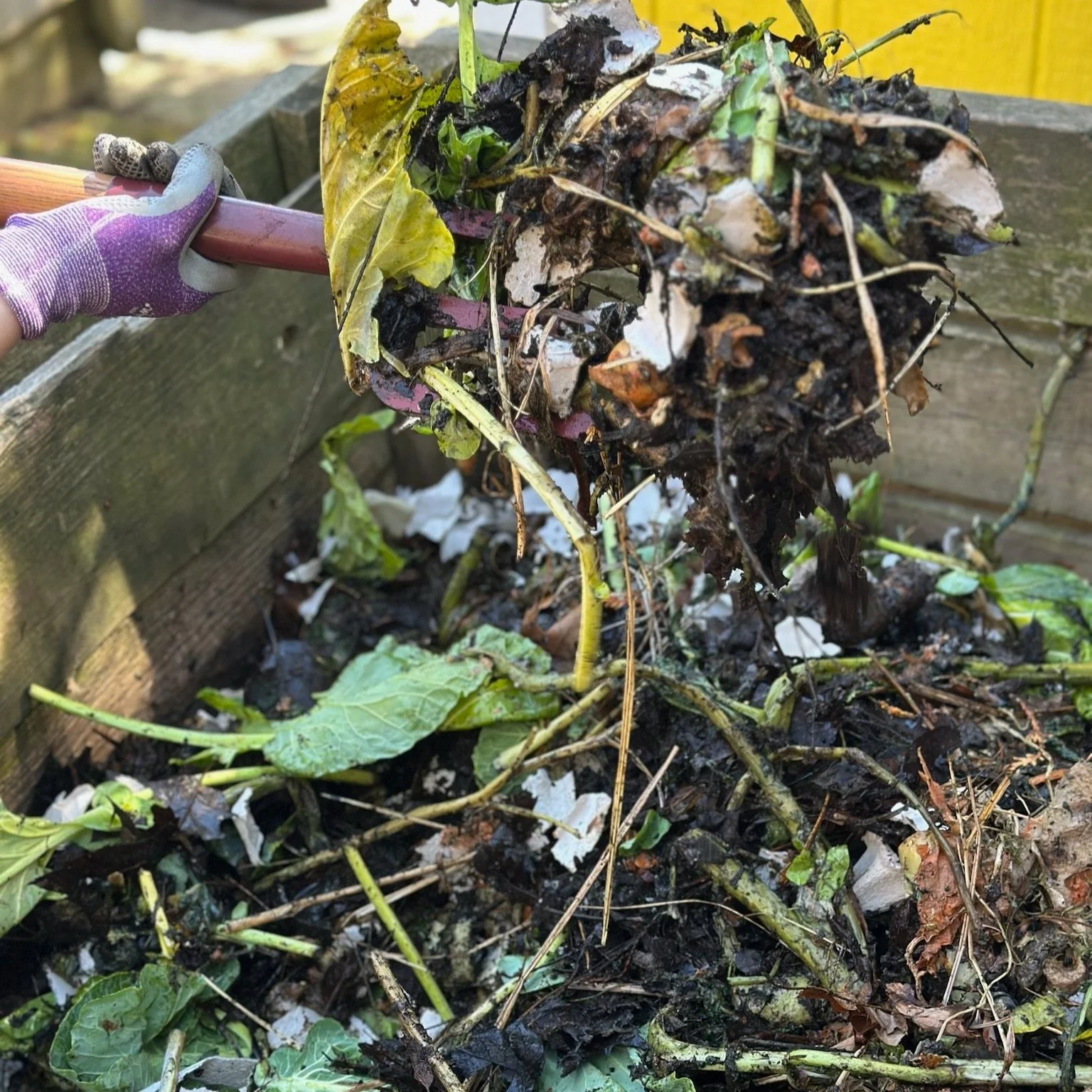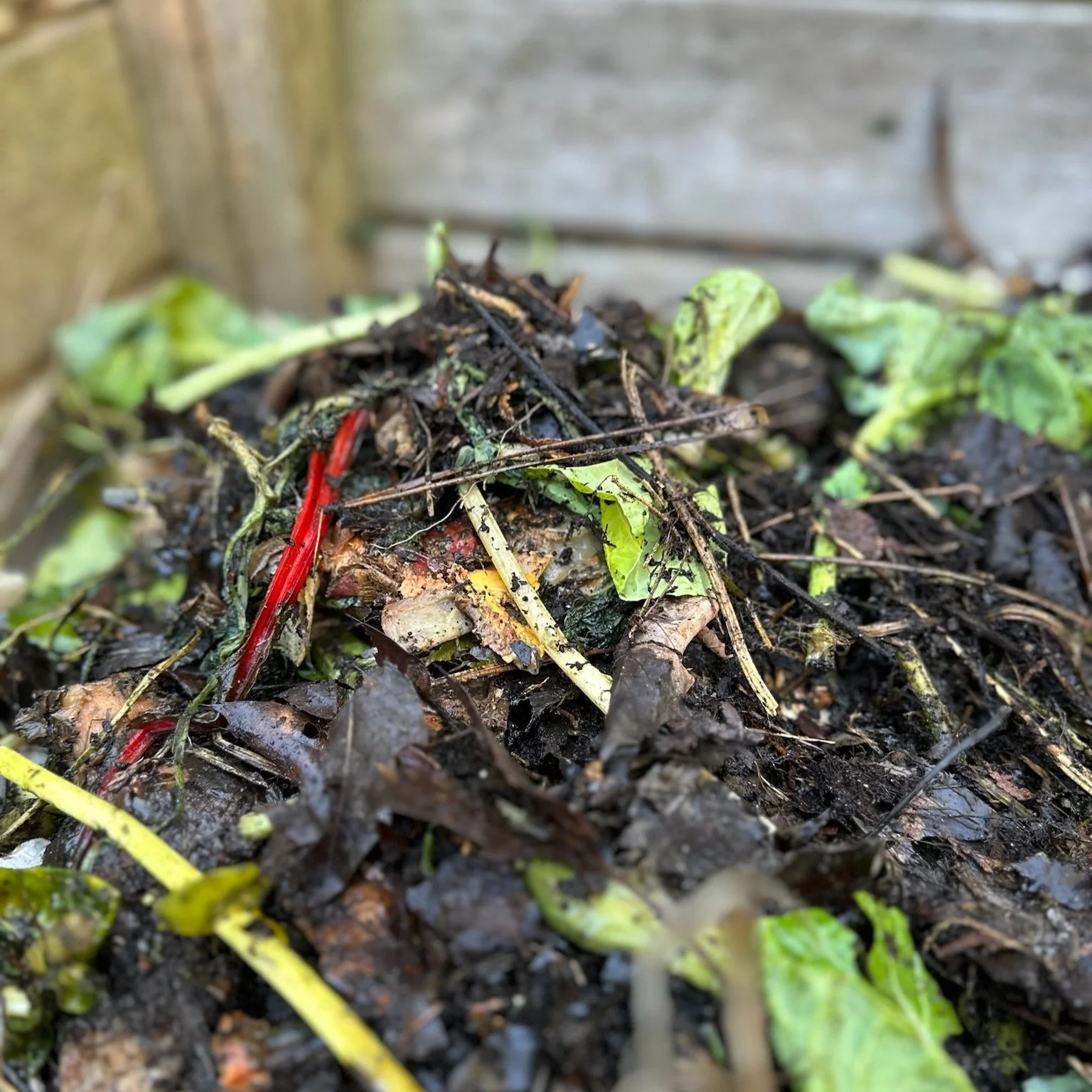Compost Health
Let's elevate our composting game and focus on maintaining the health of your compost. You have to take care of your compost in order for it to preform well. You want your compost pile to achieve high temperatures and break down waste efficiently. Here are some steps to ensure the health of your compost:
Greens and Browns: Understanding the balance between green and brown materials is crucial for maintaining a healthy compost. To avoid unpleasant odours and ensure efficient decomposition, you need to incorporate both types of materials. Many people overlook the importance of maintaining a 2:1 ratio of Nitrogen (greens) to Carbon (browns). Nitrogen will be most of your kitchen scraps and yard waste, such as weeds and grass clippings. Nitrogen is plentiful during spring and summer as you generate more of these materials. Grass trimmings are a great nitrogen boost to the compost. However, it is important to turn over your compost regularly after adding a lot of fresh cut grass. You should mix it in as much as possible or it will compact and start to smell. A lot of people have a hard time finding a balance in the warm seasons because Carbon can be harder to source. Carbon typically will come from dried leaves in the fall, dried grass, and shredded brown paper or cardboard. Something we like to do is save our egg cartons and put them in a bin to use in the summer when Carbon sources are hard to come by.
Moisture: Your compost needs moisture to thrive. In the heat of the summer you should try to water your compost at least once a week. Keeping an eye on the moisture levels will help the decomposition process. It should not be too wet where the nutrients are leaking out of the soil but just damp enough for the bacteria to effectively decompose material. The biological activity tends to slow down when the compost dries out.
Aeration: Your compost is alive! It needs oxygen to breathe just like us. To give it the oxygen it needs, it is important to turn over your compost. This will look different depending on the set up you have. Some people are able to spin their compost barrels, while others will have to use a garden fork or shovel to dig and turn over the soil. The bottom layer of the pile that does not get airflow will have a harder time breaking down. It is recommended to turn your compost at least once a week.
Shred and Chop: Having more surface area for microbes to eat away by shredding your organic waste will dramatically speed up the process of decomposition. Before adding your waste you can chop it up in small pieces to help your compost break down faster. It will also help avoid bad smells.
Additional Additives: There are some extra items you can add to your compost that will help add nutrients as well as aid in the decomposition process. Many garden centres or online shops offer a “compost accelerator,” which speeds up the composting process by increasing microbial activity.
Here are a few additional beneficial items you might have in your kitchen that should make it into your compost pile:
Egg shells. Egg shells are rich in calcium which is beneficial to plant growth. Make sure to grind them up before adding, as they break down slowly. Otherwise you might find unexpected bits of eggshell in your otherwise finished compost.
Coffee grounds. We talk about the benefits of coffee grounds here Starting Your Compost . Coffee is great for attracting worms to your compost bin. It also adds beneficial nutrients to the soil. However, moderation is key here as too much can cause the compost to become too acidic. Balance them with plenty of “browns”! Avoid clumping coffee grounds together, instead spread them out thinly across your compost pile, then mix them in. This helps with aeration and prevents the grounds from becoming too compacted and anaerobic. Avoid flavoured or pre-treated grounds! If the coffee grounds come from flavoured coffees or are mixed with other additives, they might introduce unwanted chemicals into your compost.
Blood Meal or Bone Meal. Blood meal is a great concentrated form of nitrogen to add to your compost. It will also help deter some garden pests such as squirrels that dig around and make a mess of your bin. Bone meal will add phosphorus, calcium, and nitrogen which are all beneficial to plant growth.
Sawdust or Wood Shavings. Always make sure it is untreated wood you are adding to your compost. Sawdust or very fine wood shavings will add carbon that will help with the necessary balance of carbon and nitrogen. They will also help with the aeration of your compost. Wood pieces that are too large will take awhile to break down, so it is best to avoid adding anything too large. Sawdust decomposes faster than wood chips.







